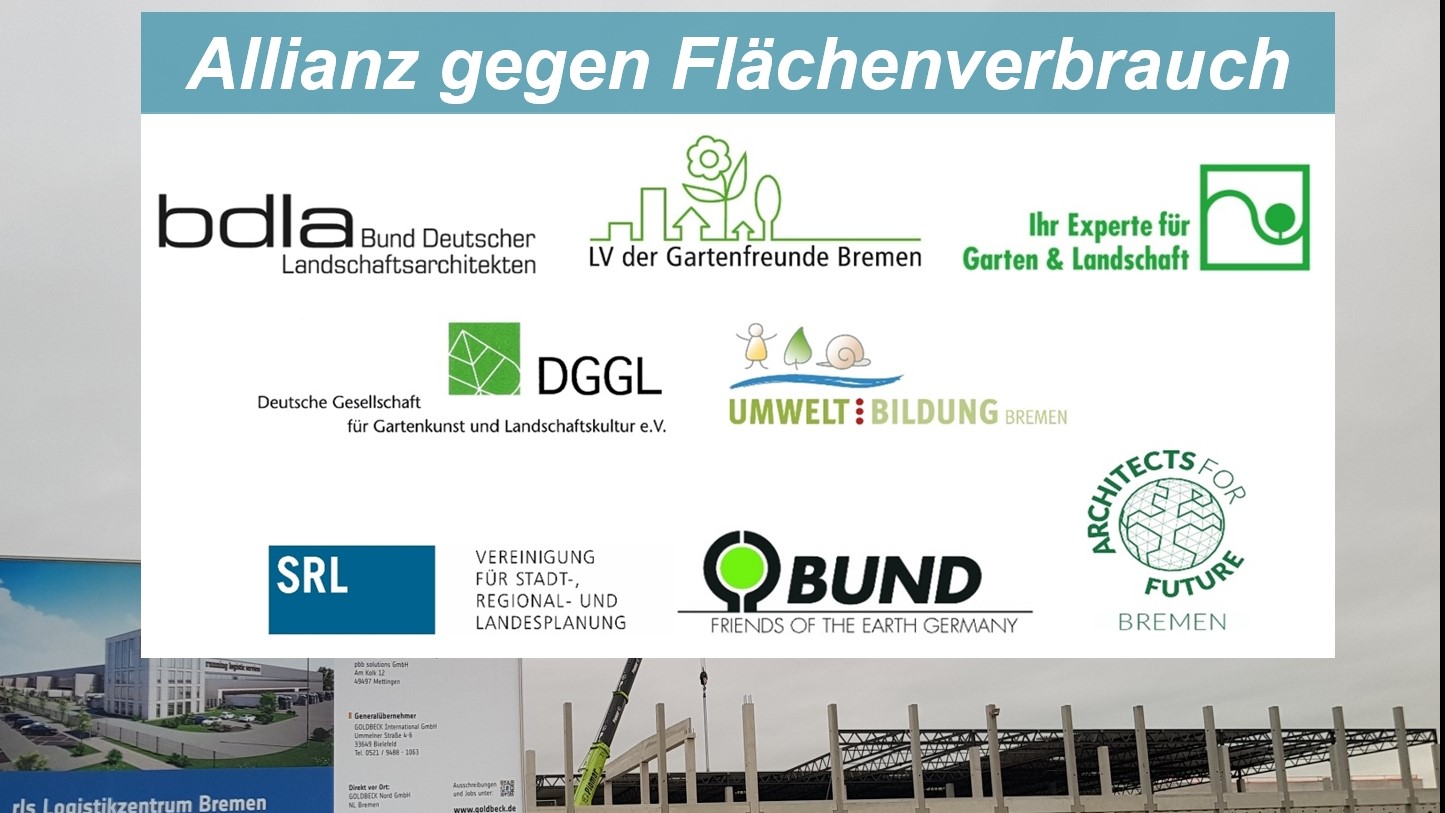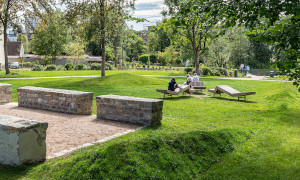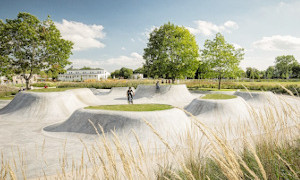Stop land consumption - For sustainable commercial development on less land
A new commercial development programme is currently being drawn up in Bremen. According to the ideas of the leading economic department, further new commercial areas are also being discussed - for example in the Blockland, in the Ochtum lowlands south of the airport, in the Neustädter Hochwasserpolder nature reserve and also in allotment garden areas, for example through the expansion of the Bayernstraße commercial area. A broad alliance of professional associations, including the Landesverband der Gartenfreunde Bremen e.V., Architects for Future Bremen e.V. and the Unternehmensverband Garten -, Landschafts- und Sportplatzbau, categorically rejects the development of new commercial areas "on greenfield sites".

The constantly increasing consumption of landscape destroys fertile soils and massively damages nature and the environment. "In times of climate change and the dramatic extinction of species, the economical use of limited space as well as the protection of natural and open spaces must have absolute priority," emphasizes Ulf Jacob, spokesman of the Alliance Liveable City.
The alliance calls for an end to the current expansive land consumption and for it to be reduced to "net zero" by 2030 at the latest. The commercial development programme (GEP 2030) must therefore develop strategies for securing Bremen as a business location without further land consumption and set binding milestones for this. A fundamental change in Bremen's land policy towards a genuine circular land economy is urgently required. This also includes a reform of the tasks and financing logic of the Bremen Economic Development Agency (WFB). The current core business of WFB, developing industrial estates at high cost and then selling them below value, is not sustainable and must be adapted to the goals of high land efficiency. The financing or success of WFB must no longer depend on the amount of commercial space sold.
In Bremen, annual land consumption currently amounts to around 35 hectares (equivalent to the size of 50 football pitches). In the last 20 years alone, more than 2125 hectares of open space in Bremen have been lost to commercial and industrial facilities (equivalent to 2976 football pitches). Currently, about 60 hectares of Bremen's surface are already traffic and settlement areas. With 348 sqm per inhabitant, Bremen has the highest proportion of built-up settlement and transport land per capita compared to other major German cities.
Next to the oceans, unbuilt soil is the largest carbon store on earth and is therefore of central importance for climate protection. Securing green spaces, urban nature and allotment garden areas are indispensable for the quality of life and the environment in the city. They provide fresh air, offer cooling in the summer heat and store valuable rainwater in the city. For animals and plants they are habitats and contribute to the preservation of urban biodiversity. The Corona pandemic in particular highlights the importance of the social functions of green and open spaces. As recreational spaces close to home, they have a positive effect on well-being and health and serve the currently particularly important recreation, exercise and environmental experience.
The Bremen Alliance for a Liveable City demands
to end the current expansive land consumption in Bremen and to reduce it to "net zero" by 2030 at the latest,
to adhere to the settlement limit of the land use plan in the GEP 2030 and to develop strategies for securing Bremen as a business location without further land consumption,
to increase the dynamics of inner development and to increase land efficiency,
to protect and strengthen the ecological services of green spaces, landscaped open spaces and allotment garden areas,
to delete the exceptions of the Greening Locations Act and to apply the rules (obligation to green) also to commercial buildings,
to strengthen the cooperation with the surrounding municipalities with the aim to work together with Lower Saxony to achieve the net zero target,
to carry out a systematic inventory of land use potentials in the commercial and mixed areas as well as a regular monitoring of the recyclable commercial land,
to re-develop land only with simultaneous unsealing of at least the same amount of land elsewhere.
More on this topic and the position paper can be downloaded at www.gruenes-bremen.de.
- Latitude: 0
- Longitude: 0


